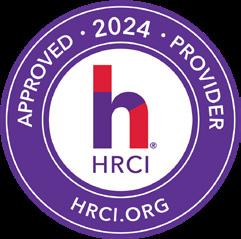






June LaMarr was a Medical Office Services Coordinator Level V at UC Davis Medical Center’s Cancer Center (Cancer Center) in 2014. LaMarr’s supervisor, Walter Knowles, suspended her for three days in July 2014 for performance issues. Her performance issues continued after her suspension. In August 2014, Knowles prepared, but did not issue, a Letter of Intent to Dismiss LaMarr. Knowles’s supervisor, Chris Jackson, was concerned by what he perceived to be an unusually expedited discipline procedure. LaMarr also told Jackson that she was having difficulties with Knowles.
Jackson attempted to defuse the situation by giving LaMarr the option to transfer to a different department. There was a Coordinator Level III position available at another department, the MIND Institute (Institute), but there were no Coordinator Level V positions available. Jackson told LaMarr that she could transfer to the Institute on a temporary basis at her normal Coordinator Level V salary. He did not inform her that Knowles had drafted a Letter of Intent to Dismiss. LaMarr accepted the temporary transfer.
Between February and March 2015, Jackson and LaMarr exchanged emails about LaMarr’s position at the Institute. Jackson confirmed that the Institute was comfortable making LaMarr’s role permanent. On March 10, 2015, Jackson emailed LaMarr and explained that if she stayed at the Institute permanently, she would be a coordinator level III with a lower salary. Jackson told LaMarr that she had three options: (1) remain at the Institute as a Coordinator Level III with a maximum wage of $25.49 per hour; (2) move back to the Cancer Center as a Coordinator Level III with a maximum wage of $25.49 per hour; or (3) move back to the Cancer Center as a Coordinator Level V (a supervisory position), but added that she would “be subject to the pending action that was put on hold during this trial period.” LaMarr told Jackson that she was surprised to learn that there was a pending action against her and had not received any documentation regarding the pending discipline. On March 16, 2015, LaMarr emailed Jackson saying that she chose to remain at the Institute. She stated that she would love to remain at the Cancer Center but could not return to a “hostile environment” where every decision she made could be questioned or grounds for discipline.
The California Supreme Court ruled in Skelly that permanent public employees have a property interest in continued employment that must be protected by due process. Before an employer can subject an employee to an adverse employment action, due process requires that the employer: (1) notify the employee of the proposed action and reasons for the action, (2) provide a copy of the charges and materials that the action is based upon, and (3) give the employee a Skelly hearing, which is an opportunity to respond either orally or in writing to the authority imposing the discipline. An adverse employment action includes dismissal, demotion, suspension, or other disciplinary action.
LaMarr sued the Regents of the University of California (Regents, which includes UC Davis). She argued that the Regents violated her due process rights by not giving her a Skelly hearing prior to her demotion. The trial court found that the Regents did not deprive LaMarr of due process when, without offering LaMarr a Skelly hearing, Jackson told her she had to choose between (1) a demotion or (2) returning to a higher paying supervisory position but facing possible termination proceedings. LaMarr appealed to the trial court’s decision.
The court of appeal agreed with the trial court. The court of appeal found LaMarr’s new permanent position at the Institute was a demotion, which is an adverse result. However, her demotion did not violate due process because it was voluntary. The court of appeal acknowledged that LaMarr faced a difficult choice but that did not make it an involuntary choice. The court of appeal explained that a government employer does not violate due process until it takes an adverse action without providing the Skelly safeguards. Here, the demotion was voluntary. LaMarr would be entitled to a Skelly hearing if Knowles issued the letter of intent to dismiss. However, he had not yet issued the letter and she was not entitled to a Skelly hearing before the employer issued it. The court of appeal noted that it was
LaMarr’s prerogative to either risk termination and receive a Skelly hearing, or voluntarily accept the demotion and not have a Skelly hearing. The court of appeal affirmed the trial court’s judgment.
LaMarr v. Regents of University of California (2024) 101 Cal.App.5th 671.

Did You Know?
LCW has four community college district consortiums across the State! Consortium members enjoy access to quality training throughout the year, discounts on other LCW products and events, and unlimited, complimentary telephone consultation with an LCW public education attorney on matters relating to employment and education law questions (including questions involving governance, business, facilities, and student matters!). We’ve outlined a recent consortium call and the provided answer on page 15. Client confidentiality is paramount to us; we change and omit details in the ERC Call of the Month.

The LCW Labor Relations Certification Program is designed for labor relations and human resources professionals who work in public sector agencies. It is designed for both those new to the field as well as experienced practitioners seeking to hone their skills. Participants may take one or all of the classes, in any order. Take all of the classes to earn your certificate and receive 6 hours of HRCI credit per course!
Join our upcoming HRCI Certified - Labor Relations Certification Program Workshops: June 13 & 20, 2024 - The Public Employment Relations Board (PERB) Academy


The use of this official seal confirms that this Activity has met HR Certification Institute’s® (HRCI®) criteria for recertification credit pre-approval.
Visit our website: www.lcwlegal.com/lrcp
John Sandy Campbell worked as a Resource Specialist Teacher from 2015 to 2017 at the Chavez Social Justice Humanitas Academy, which is part of the Los Angeles Unified School District. She was dismissed in 2017 for excessive absences, among other reasons. The Commission on Professional Competence upheld her dismissal and found that she was absent 52 days and partially absent/tardy 97 times over two school years.
In 2021, Campbell sued the District, arguing that the District racially discriminated against her and retaliated against her for whistleblowing, in violation of Labor Code section 1102.5 and 1106 and Government Code section 12940 (the Fair Employment and Housing Act (FEHA)).
The District demurred, asking the trial court to dismiss Campbell’s complaint. The trial court sided with the District and dismissed Campbell’s amended complaint without further leave to amend. The trial court held that the one-year statute of limitations described in Government Code section 12965 barred Campbell’s whistleblower retaliation claim. The trial court further held that Campbell’s could not succeed on her racial discrimination claim because she did not abide by the Government Claims Act’s claim presentation requirement to bring a lawsuit against a public entity, which is described in Government Code section 911.2.
Campbell appealed the trial court’s dismissal. The court of appeal agreed with the trial court. On appeal, Campbell argued that she previously submitted racial discrimination and whistleblower retaliation claims and had therefore “substantially complied” with the claim presentation requirement. The court of appeal found that, even if they were to assume the law allowed for substantial compliance, Campbell did not demonstrate that she substantially complied with the claim presentation requirement. For Campbell’s racial discrimination complaint, the record showed that she had only made a pre-complaint inquiry to the California Civil Rights Department (“CRD”) in August 2017. She did not show that any of her complaints went to the right people or contained the right information. Additionally, her amended complaint did not plead facts alleging that she had complied with the claim presentation requirement.
The court of appeal further found that Campbell’s whistleblower retaliation complaint was time barred. Campbell had initiated a complaint with the CRD in 2017. The CRD investigated the complaint, found insufficient evidence, and closed the case. The CRD issued Campbell a right-to-sue notice dated October 9, 2018, which told her she had one year to file a lawsuit. Campbell did not sue until September 2021.
The court of appeal noted that Campbell’s appellate brief did not argue that any amendment could cure the defects in her complaint. The court of appeal held that the trial court properly sustained the District’s demurrer without leave to amend. The court of appeal affirmed the trial court’s judgement and awarded costs to the District.
Campbell v. L.A. Unified Sch. Dist. (May 1, 2024, No. B320442) ___Cal.App.5th___ [2024 Cal. App. LEXIS 326].

To view this article and the most recent LCW attorney-authored articles, please visit: www.lcwlegal.com/news
• Recently featured in both The Recorder and Bloomberg Law, LCW Partner Alex Volberding and Senior Counsel Brett Overby discuss California’s new workplace violence prevention law, highlighting its role in setting a national standard for worker safety. Mandating comprehensive prevention plans, employee training, incident logging, and compliance records by July 1, 2024, the law urges swift action from employers. Inspired by a tragic mass shooting, it will be enforced by the Division of Occupational Safety and Health (DOSH) without a grace period. Volberding and Overby emphasize the need for customized plans, hazard assessments, and thorough training, advising employers to use templates, consult professionals, and leverage available resources to ensure effective compliance.
Current and former delivery drivers for Intelliserve brought a lawsuit alleging that Intelliserve violated employment laws by misclassifying them as independent contractors and failing to pay them minimum wage, overtime wages, and failing to provide paid sick leave. The delivery driver plaintiffs filed in Arizona state court and then Intelliserve removed the case to federal court. Intelliserve moved to compel arbitration and dismiss the case. Both parties agreed that all claims were subject to mandatory arbitration under the Federal Arbitration Act (FAA). However, plaintiffs argued that section 3 of the FAA required the district court to stay the action pending arbitration, rather than dismiss it.
Section 3 of the FAA, which is located at 9 U.S.C. §3, states that when a dispute is subject to arbitration, the court “shall on application of one of the parties stay the trial of the action until [the] arbitration” has concluded.
The district court issued an order compelling arbitration and dismissing the case without prejudice. The district court noted that “the text of 9 U.S.C. §3 suggests that the action should be stayed,” but Circuit precent “instructed that ‘notwithstanding the language of §3, a district court may either stay the action or dismiss it outright when… the court determines that all of the claims raised in the action are subject to arbitration.”
Plaintiffs appealed the dismissal to the Ninth Circuit Court of Appeals. The Ninth Circuit affirmed the trial court’s decision to dismiss the case, noting that Circuit precedent gave the district court the discretion to dismiss. Plaintiffs appealed to the U.S. Supreme Court, which granted certiorari.
The Supreme Court held that the plain language of the FAA required the court stay the proceeding pending arbitration, rather than dismiss it. Intelliserve had argued that the word “stay” in section 3 only meant that the
court had to stop parallel in-court litigation during the arbitration, which could also be accomplished by dismissing the case. The Supreme Court disagreed and pointed out that the “long-established legal meaning” or “stay” meant a temporary suspension of legal proceedings, not a dismissal.
Intelliserve also argued notwithstanding the statutory language, district courts have the inherent authority to dismiss proceedings that are subject to arbitration. The Supreme Court again disagreed, pointing out that the statute overrode any inherent discretion a district court might have otherwise had.
The Supreme Court further found that the FAA’s structure and purpose supported that a stay rather than dismissal is required. The FAA sought to move arbitrable disputes out of the court and into arbitration. The FAA allows a party to appeal an order denying arbitration. However, the FAA only allows a party to appeal an order granting arbitration under limited circumstance. If a court dismisses a case that is subject to arbitration, that triggers an immediate right to appeal, which is something the FAA sought to avoid.
Finally, the Supreme Court found that staying rather than dismissing a case better aligns with the supervisory role that the FAA envisioned for the courts. The FAA allows courts to assist the parties with arbitration, such as by appointing an arbitrator or enforcing subpoenas issued by arbitrators. This is easier to do if the lawsuit remains on the court’s docket. Otherwise, the parties would have to file a new suit to enforce the FAA’s procedural protections.
The Supreme Court reversed the Ninth Circuit’s judgement and remanded the case.
Smith v. Spizzirri (2024) ___U.S.___ [___L.Ed.2d___].
On April 25, 2024, California Attorney General Rob Bonta issued opinion number 23-902. This opinion answers a question from State Senator Marie Alvarado-Gil about whether the Legislature could amend California’s school funding formula based on the relative grades of different racial/ethnic groups.
California uses a Local Control Funding Formula (LCFF) to calculate funding for school districts, charter schools, and county offices of education. School districts receive a “grade span adjusted base grant.” This base grant is calculated as a fixed dollar amount per student, adjusted for average daily attendance.
Districts can then receive additional funding for students classified as “unduplicated pupils.” The Education Code defines “unduplicated pupils” as students who are (1) English learners, (2) eligible for free or reducedprice meals, and/or (3) foster youth. School districts receive a “supplemental grant” for each unduplicated pupil. If more than 55 percent of a district’s student population are unduplicated pupils, the district also receives a “concentration grant” for each unduplicated pupil above that 55 percent threshold. The supplemental and concentration grant funds must be used primarily to increase or improve services for the unduplicated pupils, compared to the services provided to all pupils.
Senator Alvarado-Gil asked whether the Legislature could amend the definition of “unduplicated pupils” to include all students in one of the ethnic subgroups defined in Education Code section 52052 that had the lowest average performance on the most recent statewide assessment exams. The racial/ethnic subgroups in section 52052 are “Black or African American, American Indian or Alaska Native, Asian, Filipino, Hispanic or Latino, Native Hawaiian or Pacific Islander, White, or two or more races.” The opinion provides the example that in the 2022-2023 academic year, the ethnic subgroup with the lowest average statewide test scores was Black or African American students. Under Senator Alvarado-Gil’s proposal, all Black students in California would therefore be classified as unduplicated pupils. Senator Alvarado-Gil explained that the purpose of the proposal was to address the racial achievement gap.
Attorney General Bonta concluded that the Legislature may not amend the LCFF statute in that manner. The proposed amendment would violate the federal Constitution by conditioning educational funding on student race/ethnicity.
107 Ops.Cal.Atty.Gen. 62
On April 23, 2024, the Department of Labor (DOL) announced a final rule raising the minimum salary thresholds to qualify for certain overtime exemptions under the Fair Labor Standards Act. The final rule, Defining and Delimiting the Exemptions for Executive, Administrative, Professional, Outside Sales, and Computer Employees, is set to take effect on July 1, 2024.
The final rule updates and revises the regulations concerning exemptions from minimum wage and overtime pay requirements for executive, administrative, and professional (EAP) employees, including highly compensated EAP employees.
For more information, including a chart of the updated salary levels, see LCW’s Special Bulletin on this rule
On April 29, 2024, the U.S. Equal Employment
Opportunity Commission (EEOC) finalized and released its Enforcement Guidance on Harassment in the Workplace. This guidance describes the EEOC’s enforcement of federal laws intended to protect employees from workplace harassment. The updated EEOC guidance includes the following changes, among others:
• Gender identity and sexual orientation are added as categories of protected characteristics.
• The definition of sex-based harassment now includes pregnancy, childbirth, or related medical conditions.
• The EEOC’s prohibition against harassment based on race, national origin, religion, age, and disability also includes harassment based on stereotypes of individuals belonging to those groups.
• Conduct within a virtual work environment may contribute to a hostile work environment.
• Employers are not required to accommodate an employee’s religious expression that creates or “reasonably threatens to create” a hostile work environment.
• The new guidance includes a list of features that an employer’s anti-harassment policy should have in place in order to be effective.
For more detailed information about the new EEOC guidance, see LCW’s Special Bulletin on this issue

click on the icons:



Dr. Andrew Mattioda began working at NASA in 2000. He has a degenerative defect in his hips and a disease of the spine, which causes uneven vertebrae growth and scoliosis. These physical disabilities required Mattioda to purchase premium-class airline tickets for longer flights so he could frequently change positions and stretch.
By 2011, Mattioda had informed NASA about his disabilities and limitations. Mattioda alleged that his employer discriminated against him from 20112018. Specifically, he alleged that his supervisors made derogatory comments; denied him work opportunities; gave him unwarranted negative job reviews; and expressed resistance to his requests for disability-based accommodations.
Mattioda stated that in 2011, he approached his supervisor, Dr. Timonthy Lee, about an upcoming work trip and requested a premium-class upgrade due to his physical disability. Mattioda alleged that Lee asked him why he could not “just tough it out or suck it up and travel coach.” Mattioda alleged that, on other occasions, Lee told him that he felt another scientist was doing all of Mattioda’s work and that he did not respect Mattioda or his work, thought he was lazy, and thought he was “using his medical and disability issues to avoid work.” The disparaging comments were so pervasive that some colleagues told Mattioda they viewed the comments as “background noise.” Mattioda further alleged that, at a NASA holiday party, Lee told him that he need not get his hopes up for a promotion.
Mattioda alleged that Lee inhibited his work opportunities by: declining to support Mattioda’s nomination for a promotion while supporting other candidates; failing to authorize a spot for postdoctoral program candidate to support Mattioda’s work; lying to Mattioda that he could not virtually present at a conference; declining to involve Mattioda in projects; and requiring only Mattioda, and none of his other colleagues, to submit an itemized travel request.
Mattioda alleged that another supervisor, Dr. Jessie Dotson, told him that he would have to use his own
grant money to pay for premium-flight ticket upgrades and warned him that he could lose his job if he kept requesting travel accommodations. Dotson expressed concerns on Mattioda’s performance reviews that his disability-related travel limitations would impact his career and lowered one of his ratings on that basis. At another review, Dotson allegedly asked Mattioda whether he was “still committed to being a high-profile scientist at NASA” and criticized him for not traveling.
Mattioda sued NASA in the federal district court, alleging a hostile work environment claim under the Americans With Disabilities Act (ADA). The district court dismissed the hostile work environment claim, finding that Mattioda had not established a causal link between the alleged harassment and his disabilities.
The Ninth Circuit Court of Appeals held that Mattioda had alleged a sufficient link to warrant a trial. The Court explained that the threat of losing his job if he kept requesting premium-flight tickets as an accommodation was relevant to the hostile work environment claim. The Court also noted that the district court failed to acknowledge that the alleged series of harassing conduct had occurred after Mattioda’s supervisors learned of his disabilities. As a result, Mattioda sufficiently established a causal link between the harassing conduct and his disabilities.
Finally, the Court rejected NASA’s argument that the harassment was not sufficiently severe or pervasive to establish a hostile work environment, explaining that Mattioda alleged his supervisors inhibited his work opportunities, repeatedly made harassing and derogatory comments over a period of years, vaguely threated his job, and made insulting comments about his reasonableaccommodation requests and job performance. Taken together, Mattioda’s claims were enough to maintain a plausible hostile work environment claim.
The Court held that employees may bring disability-based hostile work environment claims under the ADA and the Rehabilitation Act (RA). With this decision, the Ninth Circuit joined other circuit courts that have considered the issue.
Mattioda v. Nelson, 2024 US App. Lexis 9641 (9th Cir. 2024).
A Senior Advisor for Energy named Alice Reynolds served California Governor Gavin Newsom from January 2019 to December 2021. In December 2021, the Governor appointed Reynolds as president of the California Public Utilities Commission (CPUC).
The California Public Records Act (CPRA) requires that public records be open to inspection, unless exempt for a reason specified in the law. The deliberative process exemption exempts records and materials that reveal an agency’s course of decision-making. If a requestor challenges the use of the exemption, the agency must show that the public interest in nondisclosure clearly outweighs the public interest in disclosure.
In 2022, the Energy and Policy Institute (EPI), a “watchdog organization,” submitted a CPRA request to the Governor’s office seeking “Reynolds’ calendars.” The Governor’s office claimed that although they had identified records responsive to the request, the records fell under the deliberative process exemption.
EPI submitted a second, narrower CPRA request, this time seeking Reynolds’ “calendar events” with representatives of 10 entities, including the CPUC, where Reynolds had been appointed to serve as president. The Governor’s office again rejected EPI’s request, stating that although they had identified records responsive to the request, but they were exempt from disclosure as “correspondence of or to the governor and his staff” and “because they reveal the deliberative process of the Governor or his staff.”
EPI sued under the CPRA to direct the Governor to provide the records. According to EPI, the CPUC had issued a proposed decision that reduced the amount of compensation paid to owners of rooftop solar panels, that “created new barriers for utility customers to invest in rooftop solar and battery storage.” EPI contended the records would show that while advising the Governor, Reynolds “worked with the utility groups that she now regulates as president of the CPUC” and that “questions have been publicly raised” about whether Reynolds “was lobbied or swayed by the electric companies who stand to benefit from the changes.” Thus, EPI argued, the public had a significant interest in Reynolds’ interactions with entities in the electric utility industry prior to her appointment to the CPUC. The Governor’s office reiterated that the records fell under the deliberative process exemption, and separately, a correspondence exemption.
The trial court granted EPI’s petition. The court ordered that the calendar events on Reynolds’ calendar and the information contained there-- such as date, time, attendees, location and meeting agenda-- were not exempt. Correspondence concerning the calendar events, however, would be exempt. Concerning the deliberative process exemption, the trial court concluded that the public interest in withholding the calendar events did not outweigh the public interest in disclosure. The court issued the writ and the Governor’s office appealed.
The court of appeal agreed with the lower court. The court of appeal held that the public interest in nondisclosure did not clearly outweigh the public interest in disclosure because the calendar items would show only that Reynolds met with the entities. Those meetings would be expected and unremarkable, given her position. Moreover, the requests were not for the meeting agendas. The court of appeal reasoned that although the calendars may result in limited exposure of the office’s “priorities and deliberative choices”, the intrusion was not
enough to discourage candid discussion within the agency or undermine the agency’s functions.
The court of appeal further held that there would be substantial public interest in disclosure. The court of appeal reasoned that the CPUC is a constitutional body with broad legislative and judicial powers, so there would be a public interest in the extent to which the current CPUC president met with the CPUC and its regulated entities while serving as an advisor to the Governor. The court of appeal concluded that the public interest in nondisclosure in this case did not clearly outweigh the interest in disclosure.
State of California v. Superior Court (2024) 101 Cal.App.5th 214.
Newly Issued DOSH FAQs Confirm All Employees Must Be Trained On New Workplace Violence Prevention Obligations By July 1, 2024.
On March 27, 2024, the Division of Occupational Safety and Health (“DOSH”) published Frequently Asked Questions about Workplace Violence Prevention in General Industry (Non-Health Care Settings) (“FAQs”), which provide responses to a number of questions related to the Workplace Violence Prevention Plan (“WVPP”), including implementation, customization, training, and recordkeeping.
The FAQs clarified that all of the new requirements, including training employees on the employer’s WVPP, must be completed by July 1, 2024. There is no grace period, meaning that DOSH enforcement will start immediately on that date.
As the effective date for these statutory requirements rapidly approaches, LCW has developed several resources to help employers develop and implement a WVPP and training for their employees. You can read LCW’s Special Bulletin on this issue here. LCW offers resources, including an annotated model WVPP, template WVPP training materials, and detailed instructions and guidance on how to customize the materials. You can find more information about those resources here
Question: Is there a difference between a “seasonal worker” and “seasonal employee” for Affordable Care Act (“ACA”) purposes?
Answer: Yes. There are two different “seasonal” concepts under the ACA. There is a “seasonal worker” concept for purposes of determining whether an employer is an Applicable Large Employer (ALE) for ACA purposes. There is also a separate “seasonal employee” concept for purposes of determining whether an individual employee qualifies as full-time under the ACA.
The number of seasonal workers may affect whether an employer is an ALE. Under the ACA, employers that have at least fifty (50) full-time, including fulltime equivalent employees, are ALEs who are subject to the ACA Employer Shared Responsibility Provision (“Employer Mandate”). The ACA provides a narrow exception for seasonal workers where they do not count as employees when determining whether an employer is an ALE, if the following two conditions are both satisfied:
1. The employer’s workforce exceeds 50 full-time employees, including full-time equivalents, for 120 days of fewer during a calendar year; and
2. The employees in excess of 50 full-time employees
during that period of 120 days or fewer were seasonal workers. Seasonal workers are workers who perform labor or services on a seasonal basis, such as ski instructors or retail workers employed exclusively during holiday seasons.
Seasonal employees are employees who are hired into a position for which the customary annual employment is six months or less. An ALE may adopt the look back safe harbor measurement method to determine whether a seasonal employee measures as a full-time employee under the ACA, or use the monthly measurement method.
Each month, LCW presents a monthly benefits timeline of best practices. This timeline is intended to apply to agencies that are applicable large employers for Affordable Care Act purposes.
• Prepare for the end of the fiscal year, including budgeting for employee benefits.
• Consider whether the agency wants to revise its Section 125 cafeteria plan document. Prepare for any changes to ensure their timely adoption by December 31, before the next calendar year.

Visit our website for all our on-demand offerings: www.lcwlegal.com/events-and-training/on-demand-training
LCW Senior Counsel David Urban addresses the unprecedented legal challenges posed by pro-Palestinian protests at U.S. institutions of higher education. Highlighting the complexities administrators face, Urban discusses six critical legal areas: the requirement for public colleges to allow peaceful protests in designated areas, the enforcement of rules against unlawful protest activities, and the obligations under Title VI to protect students from harassment based on race, color, national origin, and religion.
Urban also examines the need for institutions to differentiate between protected speech and true threats or hate speech, which are not covered by the First Amendment. He emphasizes the importance of maintaining forum neutrality, where administrators cannot discriminate against viewpoints if a forum for expression is opened. Additionally, he discusses the risks associated with selective enforcement of protest rules, stressing the potential for claims of viewpoint discrimination.
With the enactment of Senate Bill 553, the legislature amended Labor Code section 6401.7 and added Labor Code section 6401.9, requiring employers to adopt and implement a Workplace Violence Prevention Plan (WVPP) and corresponding training for their employees by July 1, 2024. As the effective date for these statutory requirements rapidly approaches, LCW has developed a number of resources to help employers develop a WVPP for their worksites and training for their employees in order to comply with these new obligations. (See here for additional information about LCW offerings and here for a special bulletin on the same topic).
Option 1:
Comprehensive package including LCW’s model WVPP and template training materials along with instructions with valuable insight and explanation as to how to customize the WVPP for your unique workplace specific issues as well as how to implement and maintain an effective WVPP moving forward. This training will also provide detailed guidance regarding the customization of LCW’s training materials to effectively train your employees on issues specific to your workplace(s).
Option 1 Purchase Includes:
• Model Workplace Violence Prevention Plan (with notes on how to customize for your organization)*.
• Checklist of plan/training requirements.
• Slides you can customize and use to train your workforce.
• Three-month access to the two hour webinar recording which provides instructions on how to customize both the Plan and the training (recording length: two hours).
Option 2:
Model Workplace Violence Prevention Plan annotated on how to update for your agency.
Option 2 Purchase Includes:
• Model Workplace Violence Prevention Plan (with notes on how to customize for your organization)*.
The Department of Industrial Relations (DIR) has recently updated their guidance on these requirements. LCW’s WVPP complies with these guidelines.


Members of Liebert Cassidy Whitmore’s consortiums are able to speak directly to an LCW attorney free of charge to answer direct questions not requiring in-depth research, document review, written opinions or ongoing legal matters. Consortium calls run the full gamut of topics, from leaves of absence to employment applications, student concerns to disability accommodations, construction and facilities issues and more. Each month, we will feature a Consortium Call of the Month in our newsletter, describing an interesting call and how the issue was resolved. All identifiable details will be changed or omitted.
A Community College District client asked LCW whether there are any legal requirements for the creation of employee affinity groups or employee resource groups. The client wanted to know whether the District should have a formal process to formally approve the formation of affinity groups or employee resource groups such as going to the College/ President’s Council for appointment. The client asked whether the groups need to go to the board for approval.
The LCW attorney responded that there is nothing in the Education Code about the creation of employee affinity or resource groups. The District’s official recognition of affinity groups – or the District’s decision to permit employees to form such groups absent official recognition – may create various legal risks, including risks of discrimination and harassment claims, First Amendment and free expression issues, and labor issues associated with collective bargaining rights and concerted activities.
The attorney recommended that the District develop guidelines for either official or unrecognized affinity groups. Establishing guidelines would help the District navigate various legal issues surrounding employee affinity groups. For example, affinity groups may seek to limit membership to persons of a particular protected class, giving rise to a discrimination claim. The attorney advised that the guidelines should state that affinity group membership is open to everyone and make clear that the District does not formally recognize groups that exclude certain employees from membership.
The attorney clarified that affinity groups would not have to go to the Board for approval. They could instead seek the college president’s approval. The guidelines would also make clear the process for affinity groups to obtain official recognition by the District.
The attorney told the client that LCW has experience with and can assist the District in developing affinity group guidelines.

 Liebert Cassidy Whitmore
Liebert Cassidy Whitmore